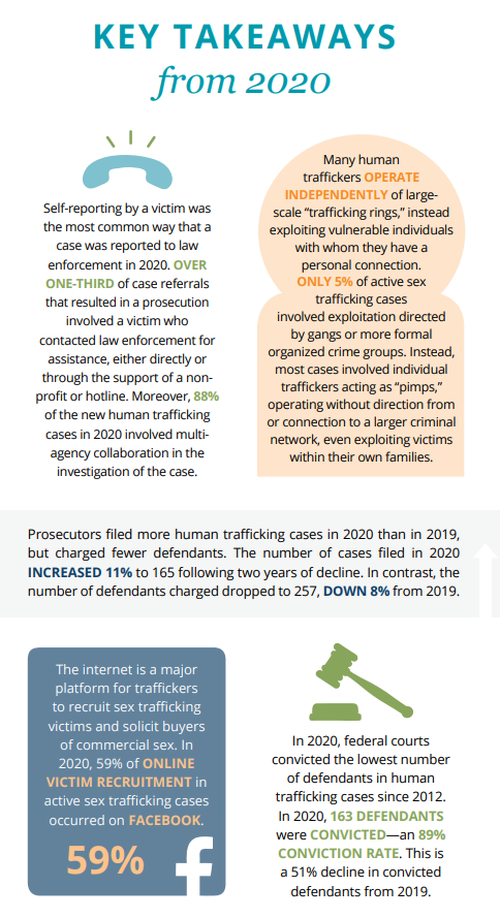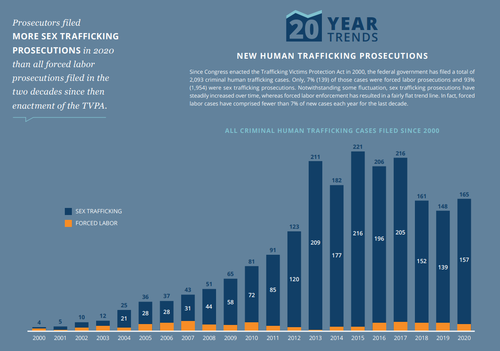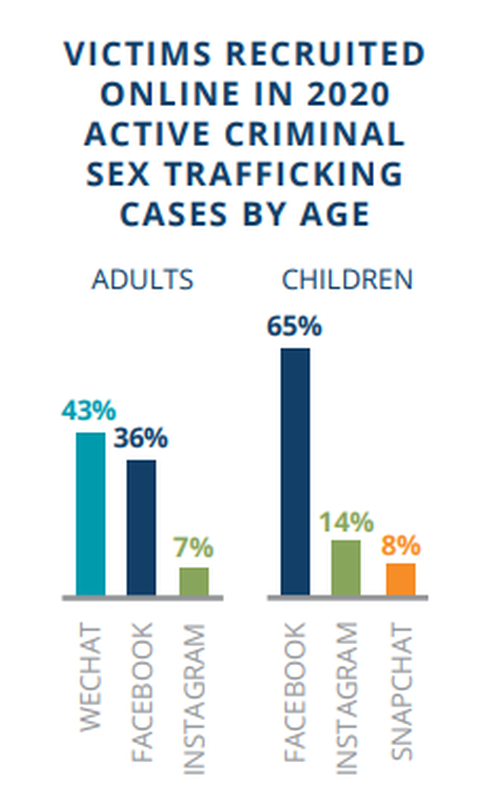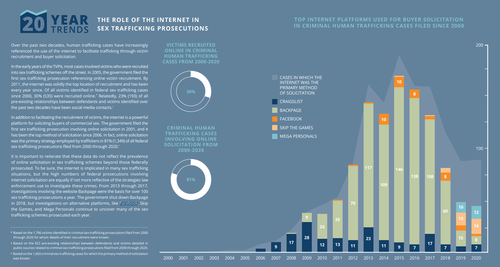Source: Zero Hedge
A stunning new report ties social media platforms – the most prominent of which is Facebook – to “the majority” of online recruitment in active sex trafficking cases.
The data was revealed in the Human Trafficking Institute’s 2020 Federal Human Trafficking Report, according to CBS.
Human Trafficking Institute CEO Victor Boutros said on CBSN Wednesday: “The internet has become the dominant tool that traffickers use to recruit victims, and they often recruit them on a number of very common social networking websites. Facebook overwhelmingly is used by traffickers to recruit victims in active sex trafficking cases.”
The report uses data from every criminal and civil human trafficking case that’s active. “This report actually looks at the last 20 years of trends in the federal government,” Boutros continued.
The report revealed that 30% of all victims identified in federal sex trafficking cases since 2000 were recruited online. In 2020, 59% of online recruitment in active cases took place on Facebook. 65% of identified child sex trafficking victims recruited on social media were also attributed to Facebook.
Children accounted for 53% of identified victims in active criminal human trafficking cases in 2020, the report says, and a “large majority” of them were women.
An active case is defined as one where defendants were charged in 2020, or had charges pending in 2020 from previous years.
Facebook told CBS: “Sex trafficking and child exploitation are abhorrent and we don’t allow them on Facebook.” (Well, that solves *that* problem).
The tech giant continued: “We have policies and technology to prevent these types of abuses and take down any content that violates our rules. We also work with safety groups, anti-trafficking organizations and other technology companies to address this and we report all apparent instances of child sexual exploitation to the National Center for Missing and Exploited Children.”
In addition to Facebook, both Instagram and Snapchat were the most frequently cited platforms for recruiting child victims.
The report stated: “These data do not reflect the prevalence of online solicitation in sex trafficking schemes beyond those federally prosecuted. To be sure, the internet is implicated in many sex trafficking situations, but the high numbers of federal prosecutions involving internet solicitation are equally if not more reflective of the strategies law enforcement use to investigate these crimes.”
Boutros concluded: “Traffickers often prey on existing vulnerabilities of victims. A lot of times we imagine that traffickers are these large group syndicates or networks, exploiting a huge number of victims. But actually most traffickers are not operating as an organized crime enterprise. It is mostly individual traffickers that are operating individually and often exploiting a small handful of victims at a time.”
The Human Trafficking Institute “exists to decimate human trafficking at its source by empowering police and prosecutors to stop traffickers.”
“Working inside criminal justice systems, the Institute provides the embedded experts, world-class training, investigative resources, and evidence-based research necessary to free victims,” the report says.
You can read the full 2020 Federal Human Trafficking report here.





